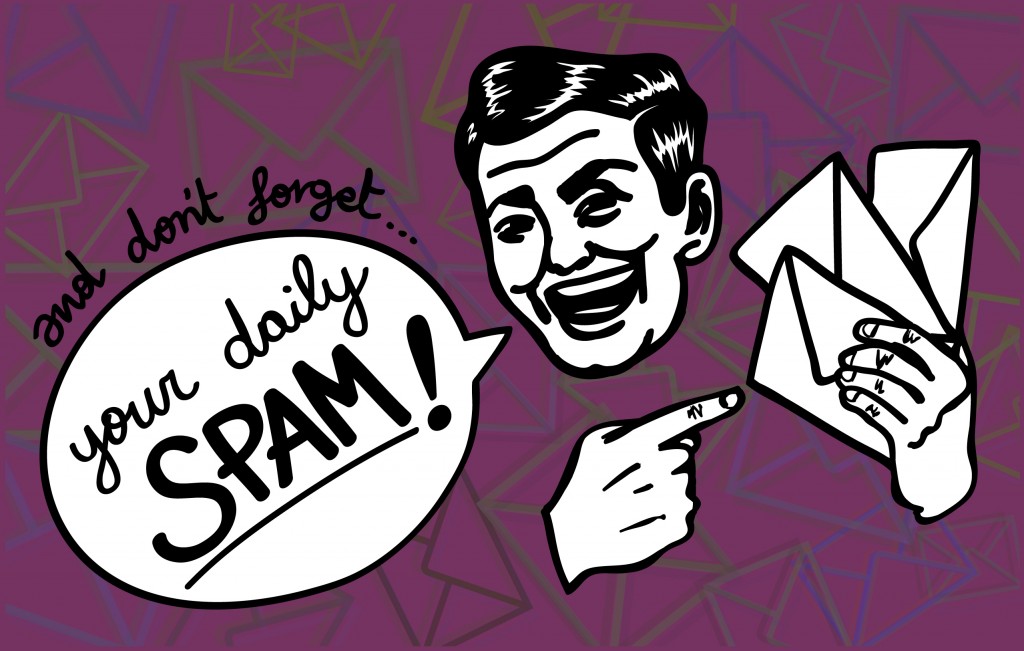How many of you love to receive spam email?
How about when you meet someone and they automatically add your to their newsletter list?
And how many of you love to get information that talks all about the sender and tells you nothing valuable?
How often do you unsubscribe to email lists and newsletters or click “junk” so they don’t hit your inbox at all?
How many of you know organizations that push their messages via the social networks, but don’t use it to engage, network, or build community?
I’d venture to guess every one of you.
If you are right with me—you hate this stuff—I want to know why you do this to others when you get behind your computer at work.
Some Examples
I ask these questions when I speak, particularly when I do three or four hour workshops. It allows us to dig deep into why people do this at work, but hate it as a consumer or buyer.
A couple of years ago, I did some research on different programs for a CRM for a client.
I spoke to five different companies.
Of the five, three added me to their newsletter list without my permission. Simply because I called looking for additional information.
I’ve received emails from companies telling me they’ve added me to their email distribution list and to let them know if that’s not OK.
These are not typically companies I’ve ever communicated with…and why would someone want to add me to their list if I’m not a potential buyer?
I’m sure this is a sales technique of some sort. Maybe it’s to see if I check my email and, if I respond (even if it’s to say no, it’s not OK they added me to their list), they know it’s a viable email address.
And, last night, my friend Abbie Fink’s Facebook status was:
I find it ironic that I would get an unwanted email from a vendor introducing me to their “latest and greatest” app to remove me from unwanted email lists.
Why do all of us hate this, but a good majority of us use this tactic, when it comes to online marketing?
The 10 Commandments of Online Etiquette
Perhaps there isn’t a one-size-fits-all equation and maybe you’re focused simply on numbers instead of conversions, but I’d like to think there is some online etiquette we all should consider.
Therefore, I have created the 10 Commandments of online etiquette.
- Thou shalt not add anyone to your newsletter list without their consent.
- Thou shalt not send a LinkedIn invite that says, “I’d like to add you to my professional network.”
- Thou shalt not post your news releases as blog posts.
- Thou shalt not talk about yourselves in your communications.
- Thou shalt not use your Twitter, Facebook, Google+, and LinkedIn accounts as news feeds for your organization.
- Thou shalt not create newsletters that talk about how great you, your leadership, your products, or your services are without putting them in context of the buyer.
- Thou shalt not build lists, fans, followers, connections, or circles just for the sake of numbers.
- Thou shalt not abuse your online power.
- Thou shalt not email bloggers, journalists, influencers, or target audiences without doing your research, building a relationship, and giving them something of value … to them, not you.
- Thou shalt not engage in black hat email marketing.
What else would you add?
image credit: Shutterstock
